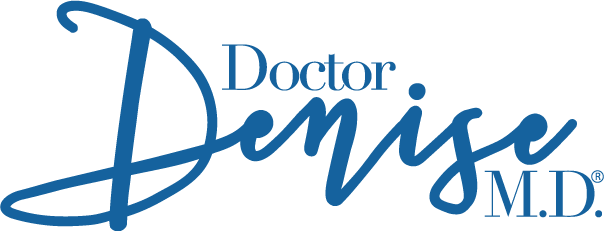ADHD: The Symptoms & What to Do When Diagnosed
I have a confession to make. The word disorder is like nails on a chalkboard to me when discussing the way someone processes or perceives the world. We are all neurodiverse. I value an organized and scientific way about talking about human behavior, I just do not view my patients as “disordered.”
I am not alone in feeling this way. The movement in Western medicine is shifting from illness to patient centered care defined by the Institute of Medicine as “care that is respectful of and responsive to individual patient preferences, needs, and values and ensuring that patient values guide all clinical decisions.”
I could not start discussing ADHD without making this point. I do not view you or anyone as disordered. We all have our own unique “neurostyle.”
Ok. Let’s discuss ADHD.
The first thought that comes to my mind when I am on the phone with a parent who is making a first appointment about “focus issues” for their child is: “It is going to be ok. No problem. Your kid is going to learn about the way he/she processes information and deals with frustration. School and life in general are about to get a whole lot better.” Before a family walks through the door I have spoken to them on the phone to set the stage for wellness. I let them know that my goal for their child is to spend the least amount of time in my office while gaining the tools to thrive. Kids should be at soccer or out playing with their friends.
The same mindset holds true for the adults I assess. If medications are needed, I prescribe the least amount possible for improved focus and impulse control while preserving an individual’s creativity and spirit. Adults want to thrive too!
The evaluation of a child for ADHD includes a psychiatric interview and collecting and reviewing data from multiple sources. Data gathering includes rating scales from parents, teachers and the child, report cards (from preschool to current age of the child), standardized testing results, and any other psychological or other type of evaluations that have been done. A recent physical exam with a full medical workup is essential to rule out or understand any medical issues that can contribute to focus issues. The clinical interview is approximately two hours as the child and the parents are interviewed separately. Input from any tutors, grandparents, and childcare providers are all taken into account.
An evaluation of an Adult for ADHD includes a clinical interview, a review of rating scales and input from someone close to them about their behavior as well as any other evaluations and a medical workup. If adults have access to their childhood report cards they are reviewed as well. All forms of data are important.
The initial connection to the patient and their family is the most important step. If someone trusts you they will be able to give you “the bottom line” as to why they are there and leave the shame at the door.
In making the diagnosis of ADHD you need six or more symptoms for children and five or more for age 17 or over:
ADHD – Predominantly Inattentive Presentation
- Fails to give close attention to details or makes careless mistakes.
- Has difficulty sustaining attention.
- Does not appear to listen.
- Struggles to follow through on instructions.
- Has difficulty with organization.
- Avoids or dislikes tasks requiring sustained mental effort.
- Loses things.
- Is easily distracted.
- Is forgetful in daily activities.
ADHD – Predominantly Hyperactive/Impulsive Presentation
- Fidgets with hands or feet or squirms in chair.
- Has difficulty remaining seated.
- Runs about or climbs excessively in children; extreme restlessness in adults. Difficulty engaging in activities quietly.
- Acts as if driven by a motor; adults will often feel internally as if they were driven by a motor.
- Talks excessively.
- Blurts out answers before questions have been completed.
- Difficulty waiting or taking turns.
- Interrupts or intrudes upon others.
ADHD – Combined Presentation
- Individual meets both sets of inattention and hyperactive/impulsive criteria.
As an Integrative Psychiatrist I embrace Western Medicine coupled with all paths to wellness. The biopsychosocial treatment plan is coupled with a Spirit/Mind/Body approach that focuses on mental wellness, not mental illness. The severity of symptoms and a multidimensional understanding of the patient determine whether or not medication will be recommended in adjunct to behavioral therapy and other modalities of treatment.
Did you know? It is speculated that some of the most creative, intuitive and brilliant entrepreneurs and scientists had ADHD. Just google it. I am not saying that everyone with ADHD is brilliant. I am saying that the ability to access “non-linear” information is essential for creativity and invention. This is why it is important to be properly assessed and not overmedicated. We all want to be the best version of ourselves!
Be empowered. Be educated. Know all of your options for thriving with any focus or behavioral challenges. Find someone who will embrace your neurostyle – no matter what!
You know what I love? Kids and Adults who reach their fullest potential. Do you know how cool it is when I get a card around the holidays with someone’s report card with high marks due to high effort? Or a top realtor has tripled their sales due to improved focus?
That is the reward and honor of helping to facilitate your “A” game!
Dr. Denise




